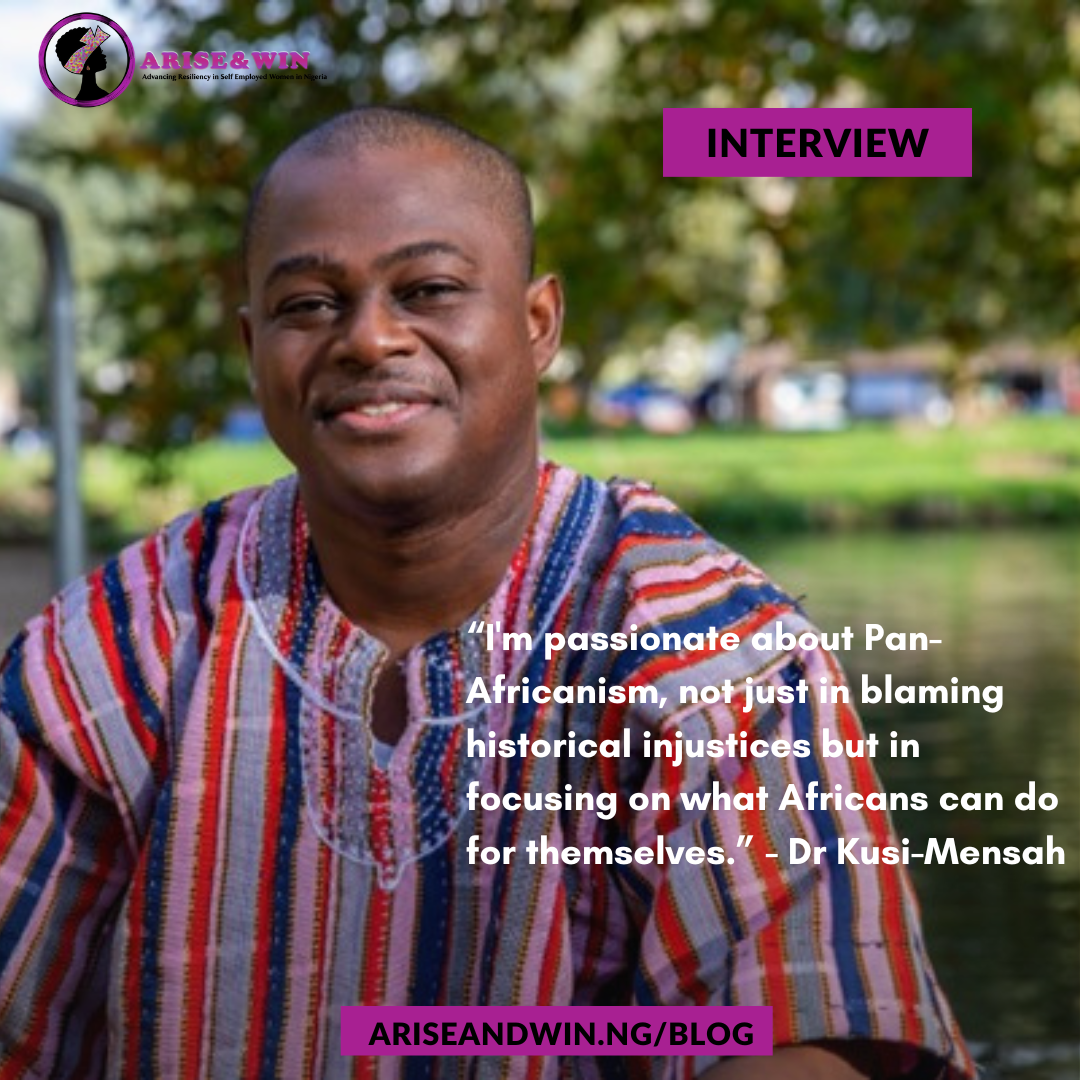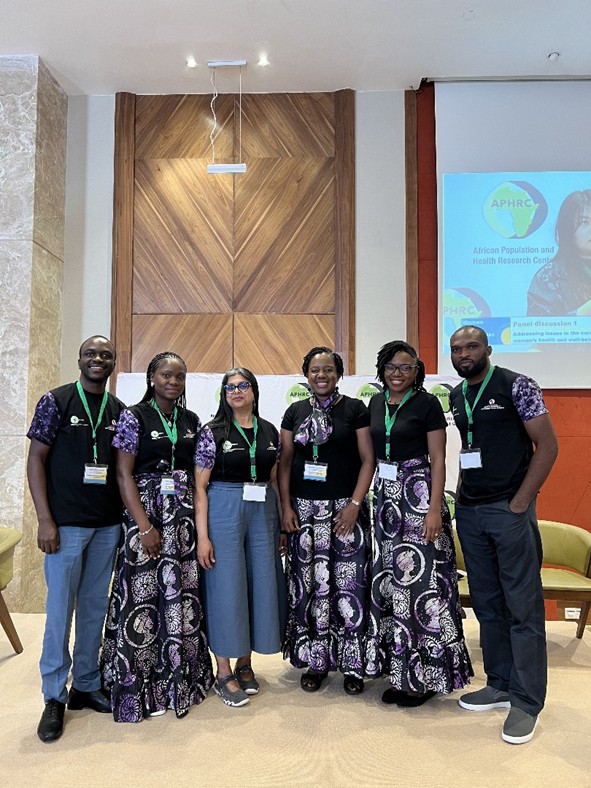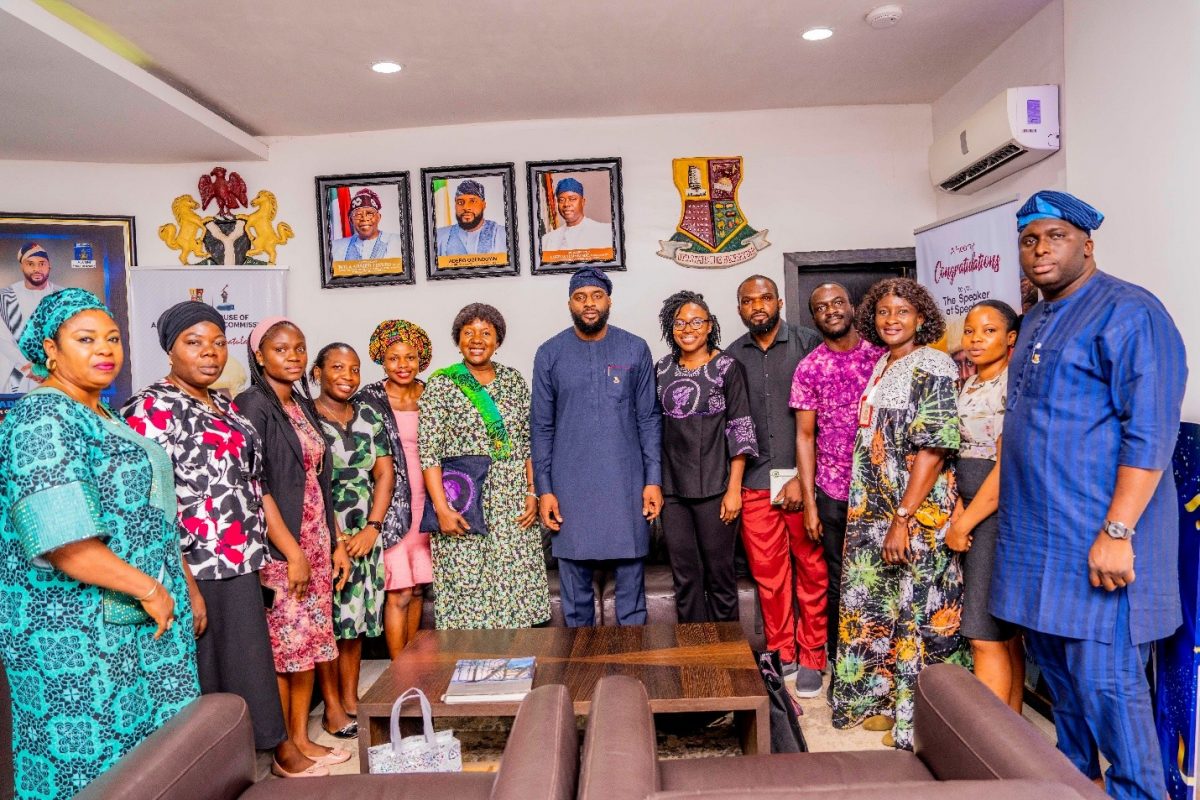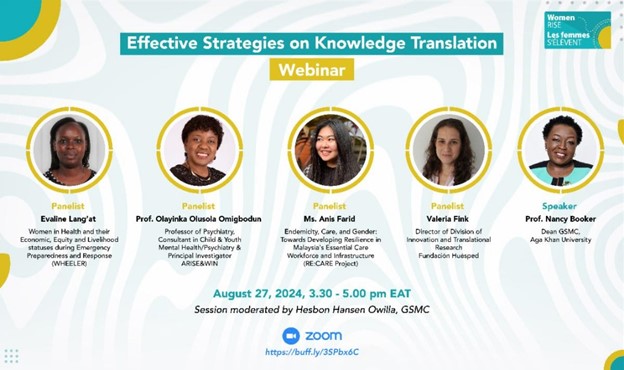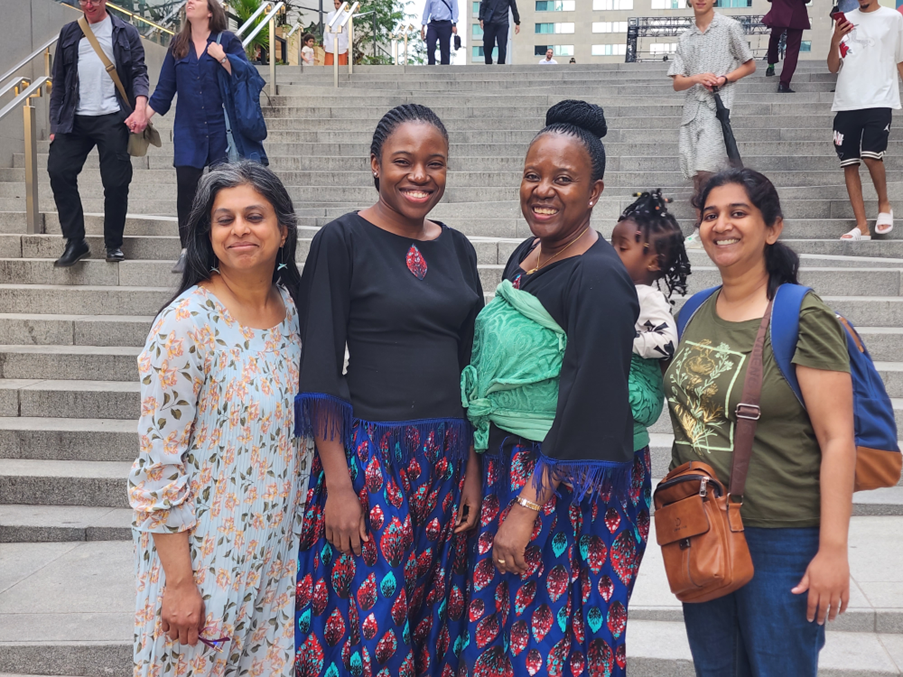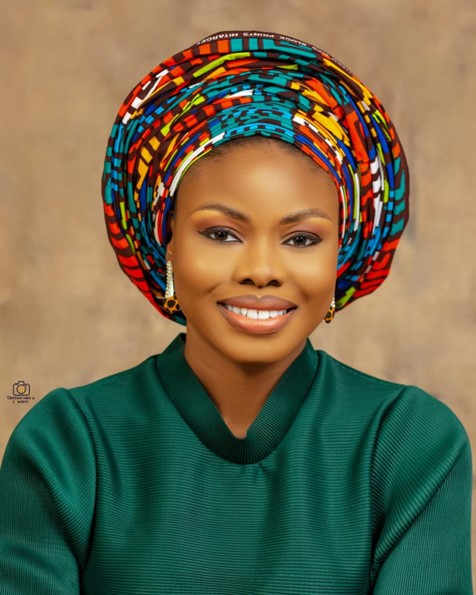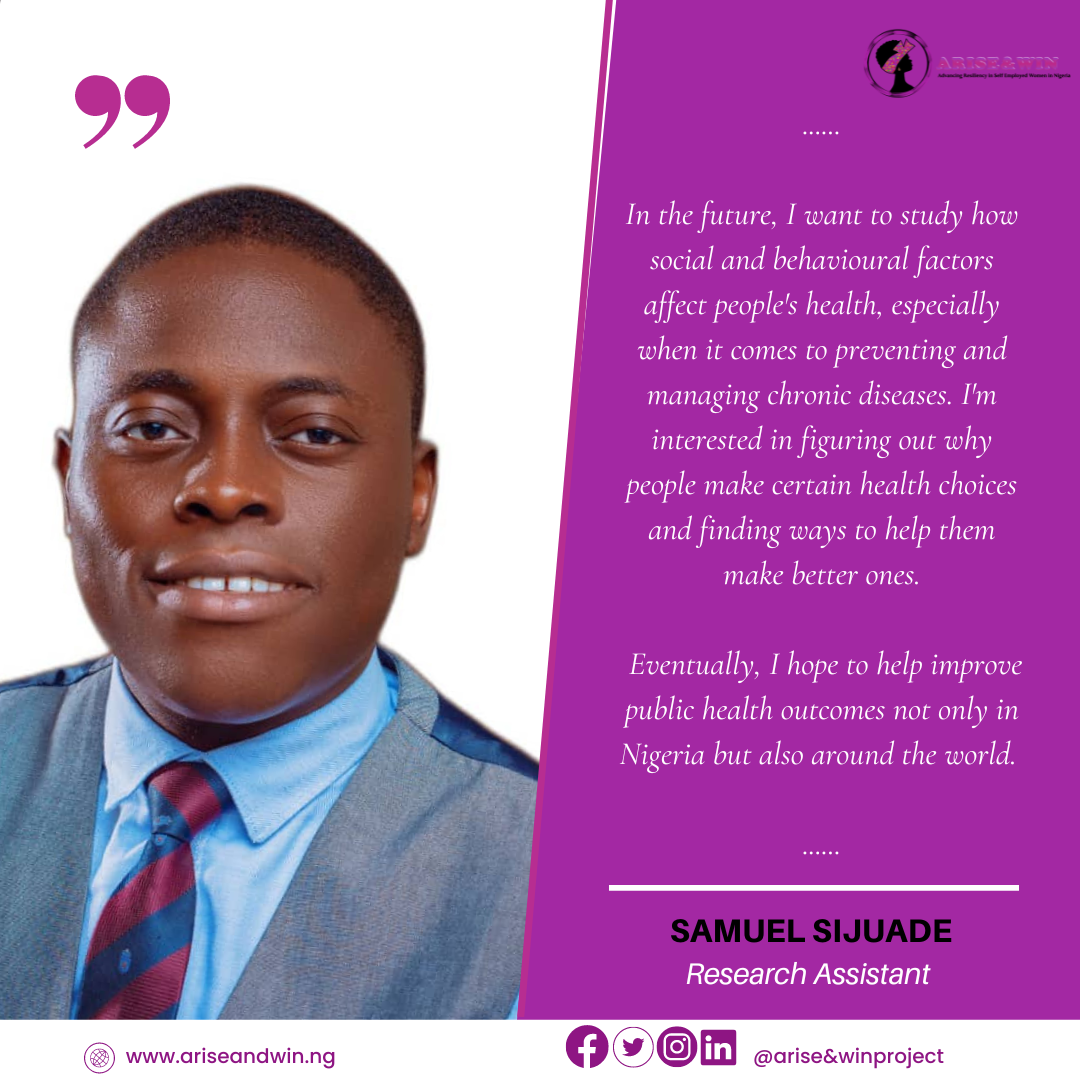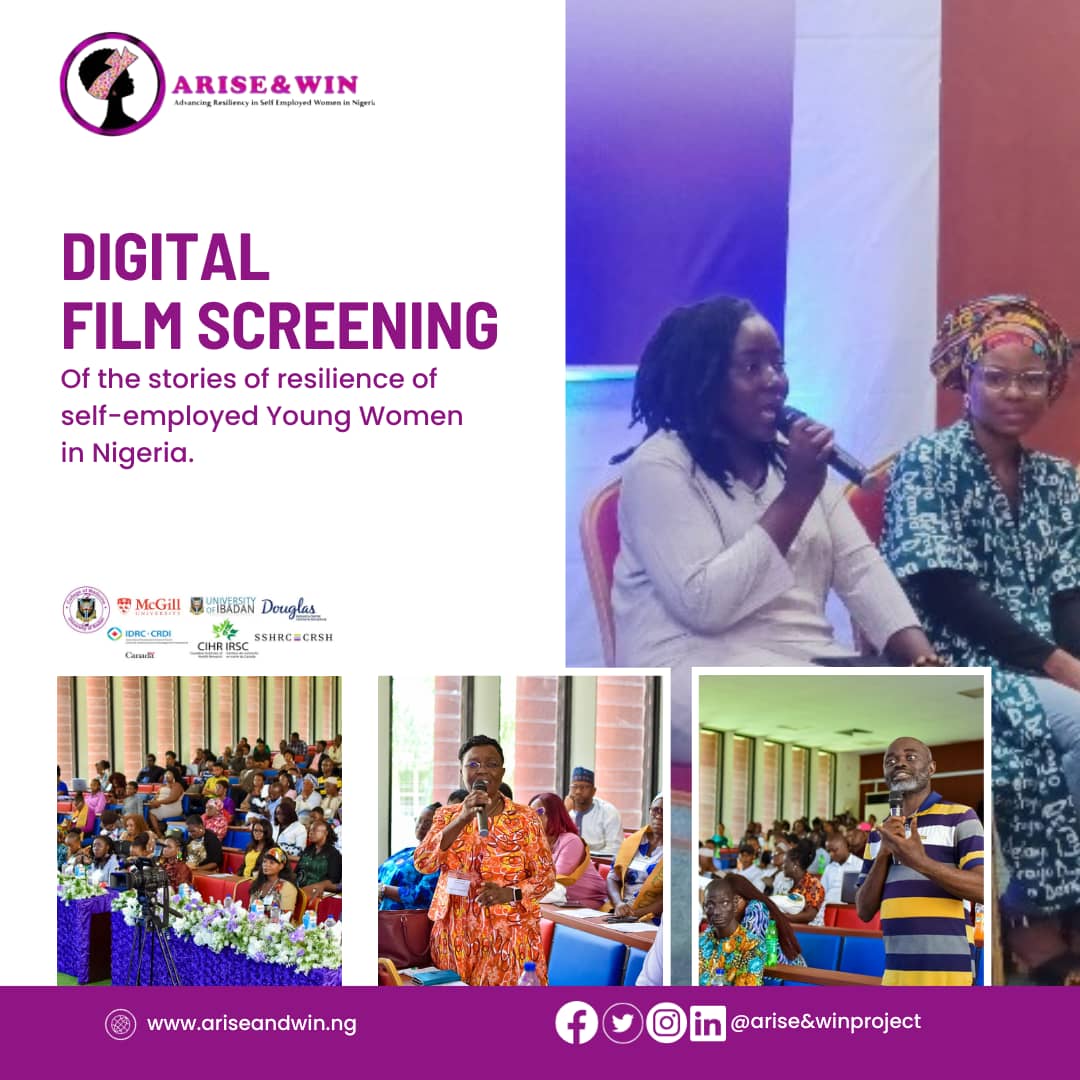
Dr. Kwabena Kusi-Mensah’s story began in the vibrant city of Kumasi, Ghana, where his journey into psychiatry and child mental health started. Despite limited exposure to psychiatry during medical school, a significant experience during his final year psychiatric rotation set the course for his career. Now a passionate advocate for children’s mental health in a region where such specialization is not common, Dr. Kusi-Mensah’s dedication and expertise have made him become a pivotal member of the ARISE&WIN Project.
On the ARISE&WIN Project, he serves as a consultant, bringing his expertise to the Scoping and Systematic Review Workstreams. Driven by a desire to bridge the gap between clinical practice and research, he emphasizes the importance of merging these for the continent’s progress. In this interview with Mr. Oluwaseun Abimbola and Mr. Samuel Sijuade of our Communication Workstream, Dr. Kusi-Mensah shares his personal and professional journey, shedding light on his vision for Ghana, Nigeria, and Africa at large. This interview touches upon crucial topics, including the development of research capacity among mental health professionals, the dynamics of his daily work, his family life, and his unique perspective on achieving a self-sufficient and empowered Africa. The interview has been edited for clarity.
It’s a pleasure to speak with you today, Dr. Kusi-Mensah. Your reputation is one of exceptional scholarship. Can you tell us more about yourself and your work?
Dr. Kusi-Mensah: My name is Kwabena Kusi-Mensah. I’m a psychiatrist based in Kumasi, which is the second city of Ghana, located about 270 kilometres from the capital, Accra. Kumasi is an ancient historic city, once the capital of the Ashanti Empire in the 19th century. There are cultural similarities with Ibadan, Nigeria, which is why I mentioned it. I have additional training in Child and Adolescent Mental Health (CAMH) and I’m very passionate about children’s mental health. Women’s mental health is also an integral part of my focus, connecting my professional interest with the ARISE&WIN Project. I’ve been practising as a medical doctor for almost 13 years, with about seven or eight years of experience as a mental health expert.
Thank you so much for that. At what point did you decide that you wanted to go into mental health? Because I know in Africa, that’s not really part of the field that people say, well, I’m interested in. What made you become interested in mental health?
Dr. Kusi-Mensah: That’s a very interesting question. In my medical school in Kumasi, we didn’t have properly trained psychiatrists interacting with us until my final medical school year. During my psychiatry posting rotation in my fourth year of medical school, I encountered a medical officer with some experience but not a fully trained psychiatrist. The image I had of mental illness was quite disheartening – individuals with schizophrenia, talking to themselves, and drooling, conforming to the unpalatable stereotype we often associate with mental illness in Africa. It saddened me to see that nothing was being done for them. In my final year, we had a newly qualified psychiatrist, Dr. Donnir, who became a mentor. Witnessing the impact of psychiatric care changed my perspective. I realized that these individuals [people with mental health issues] could be helped, and it wasn’t a straightforward process like treating common physical ailments. The complexity and interaction involved fascinated me, drawing me towards mental health. I’ve always been non-conformist, drawn to the non-mainstream, and this experience left a strong impression on me.
I’m curious about the pivotal moment when you decided to pursue psychiatry, especially in a region with limited resources for mental health. Can you tell us more about that decision-making process?
Dr. Kusi-Mensah: Certainly. After my medical school, I worked in Tamale, a city in Northern Ghana, which was culturally equivalent to cities like Kano or Kaduna in Nigeria. It was a deprived area with no psychiatrist. Witnessing people with mental illness brought in from prayer camps, with seemingly no intervention, disturbed me. This was in stark contrast to other medical fields where, despite resource limitations, there was at least some knowledge and skill available to help. This experience, coupled with my earlier exposure to Dr. Donnir, solidified my interest in mental health. My initial desire to help the vulnerable, particularly children, led me towards paediatrics. However, during my housemanship, I discovered the field of child psychiatry, aligning with my passion for helping people and working with children. It was a journey of self-discovery, and despite not having all the answers, I chose to follow my inner compass, believing that everyone has a true north or a direction they are meant to head. It was a leap of faith, but looking back, I’m content with the path I took.
Interesting! But I’d like some clarification on the distinction between being a mental health professional and a researcher. Can one be both, or are they distinct roles?
Mr. Kusi-Mensah: Absolutely, great question. I firmly believe you can be both a mental health professional and a researcher. In Africa, we’ve somewhat perpetuated a cultural myth that separates clinicians and professionals from researchers. I think this mindset contributes to our tendency to seek solutions abroad. The truth is, clinicians and researchers are two sides of the same coin. Researchers are individuals trained to ask the right questions and formulate them in a way that, with their skills and methodologies, they can answer those questions. Whether you’re in medicine or any other field, providing day-to-day services means encountering issues you might not have immediate answers to. You have a choice: stop at not knowing, or let your curiosity drive you to find answers.
Research, essentially, is about answering questions systematically. You start by reviewing existing literature to see what answers others have provided. If you find the question hasn’t been satisfactorily answered, you design a research project to address it. If we don’t unite the roles of clinicians and researchers, we’ll continually play catch-up with the Western world, always reacting to their questions instead of asking our own. While some individuals may lean more towards being clinicians or researchers, the key is recognizing that these roles aren’t mutually exclusive. They complement each other, and by bridging the gap, we can propel research and development in Africa.
Consider a typical African hospital—it shouldn’t just focus on service provision but also on research and development. Currently, our short-term focus on serving millions might sabotage our long-term growth. We must invest in marrying the roles of clinicians and researchers for true emancipation in the African academy. As for my day-to-day, I’m transitioning from a purely clinical role to a more balanced approach, aiming for a 50-50 split between clinical work and developing research capacity. This shift from the traditional model of seeing as many patients as possible for financial gain to a more abstract, long-term goal is essential for progress.
That’s clear. A quick one too though: I’m intrigued by your role on the ARISE&WIN Project, particularly in the Scoping and Systematic Review work streams. Why did you accept this role, and what does your role entail?
Dr. Kusi-Mensah: I appreciate your asking that question. My involvement in the ARISE&WIN Project as a consultant in the Scoping and Systematic Review Workstreams stems from my unique experience with conducting such reviews. To fulfil a requirement to have completed a Master’s level project at the end of the first year of my PhD, I decided to delve into systematic reviews, thinking it would be a standard literature review. Little did I know how gruelling it would be. I faced a steep learning curve, attending courses and teaching myself how to conduct a systematic review. The process took about six intense months, working long hours from morning till night. However, the effort paid off as I not only passed the first-year report for my PhD with flying colours but also had my paper accepted by a prestigious journal on the first attempt. My journey through this challenging experience equipped me with practical knowledge of conducting systematic and scoping reviews. Hence, when the opportunity to contribute to the ARISE&WIN Project arose, I readily accepted to bring my expertise to the team.
As for my role, it involves guiding the team through the intricate process of constructing a scoping and systematic review. I provide insights on structuring the review, formulating the right questions, and where to search for relevant information. My responsibilities also include overseeing each step of the process to ensure methodological accuracy. Although it may seem straightforward, conducting a systematic review is complex, and having an experienced person on board is crucial to prevent major mistakes that are difficult to rectify later on. Systematic reviews are held to a high standard of scrutiny, considering they compile evidence from numerous papers. My role is to ensure meticulousness and precision throughout the process. Ultimately, the aim is to produce a rigorous and well-done systematic review that can contribute meaningfully to the existing body of literature and, hopefully, get published in a reputable journal.
Considering your career as a medical doctor and the scope of your research, what is your desire for Ghana, Nigeria, and Africa at large?
Dr. Kusi-Mensah: My dreams are broad, but I’ll focus on academia, research, mental health, and health in general. I’m passionate about Pan-Africanism, not just in blaming historical injustices but in focusing on what Africans can do for themselves. My dream is to see us get to a place of self-sufficiency. There’s a lot we can do for ourselves that we are not doing. We often blame leadership, and yes, they deserve it, but it’s not just at the political level. It’s at every level – institutions, families. We need a mindset change.
In terms of my specific field, mental health academia, I dream of self-sufficiency. No society develops by being continually dependent on others. We need to build our capacity, not just technically but also in terms of cultural change. I’m passionate about changing mindsets and attitudes, particularly in the educated middle class. We are the transformational change agents. If we, in the middle, don’t care or don’t try to hold leaders accountable, there’s no hope for the future. I hope that in 10 years, we can see Africans collaborating, breaking free from the divide-and-rule mentality, and overcoming the need for external validation. Once we break free from that mental shackle, nothing can hold us back.
As a medical practitioner and as a husband, as a father, how do you manage all that you do? And what’s your advice for upcoming young professionals? Thank you.
Dr. Kusi-Mensah: Yeah, good question. Time management. I guess it comes down to prioritization. Scripture says, “Where your heart is, there your treasures will be.” People often lack balance because they don’t truly prioritize what they say they value. Especially for men, depending on the life stage, priorities differ. In your 20s, it’s skills acquisition and learning. 30s, building experience. 40s, peak career, chasing money. By the 60s, you reflect on neglected aspects like family. So, the advice is to have a long-term view of life at any point. If you fall into the temptation of a short-term view, the needs of that stage dominate, and you neglect everything else. Constantly remind yourself that desires change as you grow, and family and career are both important. Force yourself to give priority to what matters.
Ask yourself, “When I’m 80 or 90, what do I want said about me?” You have the power to answer that question by the choices you make. Keep that question in mind. It keeps me grounded. I’m not always following immediate instincts. Climbing the career ladder is important, but so is considering family and how you treat them. I’m not perfect, but keeping that question at the back of my mind helps me find balance. I don’t want to be remembered only for professional success while neglecting family. It’s not a perfect solution, but it helps let go of things you’d rather do at any point to focus on what you know you should do.
Thank you so much for your time, sir.
Dr Kusi-Mensah: Thank you too for your time.
